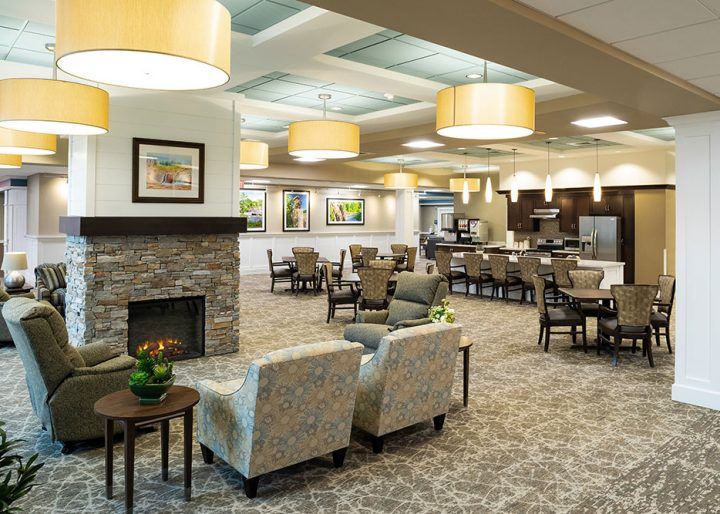The Relevance of a Comprehensive Program of Treatment in Assisted Living Settings
In aided living settings, the application of a comprehensive program of care is essential for attending to the complex needs of citizens. By prioritizing customized treatment strategies and entailing families in the procedure, these programs can significantly enhance wellness outcomes and high quality of life.
Recognizing Comprehensive Care Programs
As helped living centers proceed to develop, comprehending thorough care programs ends up being crucial for both residents and their households. Comprehensive treatment programs are made to address a vast array of demands for people residing in helped living atmospheres, making certain that each resident obtains tailored support that reflects their distinct health and wellness problems and way of living choices.

Family members play an important role in this process, participating in care preparation and continuous conversations to guarantee that the homeowner's requirements are consistently satisfied. Recognizing these programs is important for making educated decisions regarding treatment choices and taking full advantage of the high quality of life for citizens in assisted living facilities.
Advantages for Residents

In addition, residents experience increased assurance, knowing that professional support is readily available should they require assistance. This guarantee permits them to concentrate on appreciating their day-to-day tasks and preserving significant connections.
Function of Caregivers
Caregivers play an essential function in the wellness of locals in assisted living facilities, guaranteeing that their needs are consulted with compassion and competence. They work as the main point of call for homeowners, supplying necessary assistance in daily tasks such as showering, dressing, and medication management. Their visibility not only promotes physical wellness yet likewise boosts psychological and social health by cultivating connections built on trust and understanding.
In enhancement to supporting daily living tasks, caretakers are critical in monitoring modifications in citizens' health and actions. They are trained to identify refined signs of distress or decrease, allowing prompt interventions that can prevent difficulties. Their understanding of each resident's special history and choices allows them to supply personalized care, enhancing the total high quality of life.
Furthermore, caretakers act as supporters for residents, connecting their needs and choices to other health care professionals and family participants. This advocacy is essential in creating an alternative care atmosphere that values the dignity and freedom of each person. Ultimately, the devotion and ability of caregivers are crucial components of a detailed program of treatment, underpinning the success of assisted living settings.
Customizing Treatment Program
While every resident in assisted living has special demands and preferences, personalizing treatment strategies is necessary to supplying effective and customized support. A one-size-fits-all method to care can overlook important facets of individual wellness, possibly bring about suboptimal outcomes. Assisted Living. A thorough assessment of each local's health and wellness condition, individual background, and way of life options is vital in creating customized treatment approaches.
The modification procedure entails cooperation amongst medical care specialists, caretakers, and member of the family. By integrating input from all stakeholders, care plans can address not just clinical demands however likewise emotional and social elements that add to overall top quality of life. Routine evaluations and updates to these plans ensure that they remain pertinent as homeowners' problems and preferences develop over time.
Enhancing Community Involvement
Structure on the structure of personalized care plans, improving neighborhood interaction is an important facet of enhancing the overall experience for residents in assisted living (Memory Care). Energetic involvement in community activities cultivates social connections, fights sensations of isolation, and adds to emotional health. Helping with possibilities for locals to participate in group tasks, such as art courses, gardening, and workout sessions, creates an inclusive setting that promotes interaction and cooperation
Furthermore, incorporating residents into the more comprehensive neighborhood through collaborations with regional companies can supply enriching experiences, such as offering and going to social events. This not just assists residents really feel valued but additionally enhances connections with the surrounding area, improving their feeling of belonging.
Moreover, encouraging household involvement in neighborhood tasks is necessary. Assisted Living. Relative can serve as vital support group, aiding to connect the void between citizens and the community. Routine family events and open discussion forums for discussion foster openness and cooperation, guaranteeing that the treatment environment stays receptive to the needs of all stakeholders
Final Thought
In final thought, detailed treatment programs in assisted living setups play a vital duty in maximizing homeowners' health. The participation of family members in treatment preparation strengthens support networks, promoting a dignified and autonomous living environment.
Comments on “Get expert care and comfort with trusted Assisted Living solutions.”